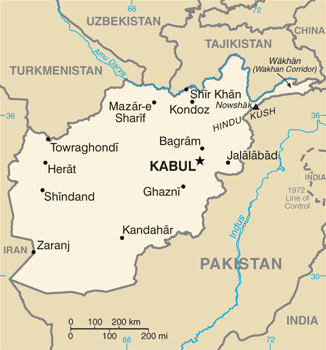
Chillingly, two days after 9/11’s 10th anniversary, terrorist insurgents launched the largest and most highly organized terrorist attack to date in Kabul, Afghanistan. In a 20-hour assault beginning Tuesday, six rebels propelled rocket grenades and automatic weapon ammunition directly towards the U.S. Embassy and NATO’s command center. At the same time, suicide bombers attempted three separate attacks on two different police buildings and possibly Kabul’s airport. All three rebels were killed by Afghan police, including one on the road leading up to the airport.
As of Wednesday morning, 23 Afghan civilians are reported to be wounded and nine Afghans killed; four of the casualties were police officers. The six terrorists who attacked the American Embassy set up camp in a building under construction across from their target. A coordinated effort by Afghan security forces and NATO ended Wednesday morning after they swept the entire building and killing the last of the six insurgents. Eerily, when crime scene investigators flipped over the corpse of one of the rebels, they saw a live grenade strapped to his back.
Despite the nature of the organized, simultaneous attacks, U.S. Ambassador to Afghanistan Ryan Crocker stated that the assault was “not a very big deal,” describing it more as “harassment” rather than a dire security threat. He praised Afghan and international security personnel for bringing the situation successfully under control.
Still, as Afghanistan prepares for the total evacuation of international military troops, including the U.S, by 2014, it begs to question whether local security forces and police officers can handle future terrorist attacks, especially since this time the insurgents were able to penetrate such a high security area this time. President Hamid Karzai stated, “By carrying out such attacks terrorists cannot stop the transition of security from international to Afghan forces.” He has full confidence in his country’s ability to maintain law and order within Afghanistan.
Whether the insurgent attack is viewed as big or small, there was a glitch in intelligence efforts. Taliban spokesman Zabihullah Mujahid said the September 13 strike had been planned for months. It is also believed that the insurgents were directly tied to the Haqqani Network, a terrorist group in Pakistan affiliated with both the Taliban and al-Qaeda.
Within the last few months, several other terrorist-led attacks have taken place in Kabul. In August nine people were killed when suicide bombers invaded British Council Headquarters; in June, ten were killed when a popular hotel for Westerners was hit. However, the attacks of the last 24 hours have been the most calculated and have posed the highest security yet.



